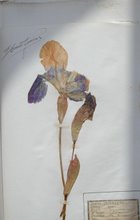En el párrafo centésimo segundo de El Origen de las Especies informan Félix de Azara y Rengger de una mosca del Paraguay que pone los huevos en el ombligo del ganado
Sigue el autor empeñado en hablar de luchas y batallas para explicar las complejas relaciones entre organismos y los cuatro párrafos dedicados a las complejas relaciones están llenos de expresiones de éste tipo:
Batallas tras batallas han de repetirse continuamente con diferente éxito,
Al final del párrafo una confesión que hay que interpretar literalmente:
Nevertheless, so profound is our ignorance, and so high our presumption, that we marvel when we hear of the extinction of an organic being; and as we do not see the cause, we invoke cataclysms to desolate the world, or invent laws on the duration of the forms of life!
Sin embargo, tan profunda es nuestra ignorancia y tan grande nuestra presunción, que nos maravillamos cuando oímos hablar de la extinción de un ser orgánico, y, como no vemos la causa, invocamos cataclismos para desolar la tierra o inventamos leyes sobre la duración de la vida.
102.
Here we see that cattle absolutely determine the existence of the Scotch fir; but in several parts of the world insects determine the existence of cattle. Perhaps Paraguay offers the most curious instance of this; for here neither cattle nor horses nor dogs have ever run wild, though they swarm southward and northward in a feral state; and Azara and Rengger have shown that this is caused by the greater number in Paraguay of a certain fly, which lays its eggs in the navels of these animals when first born. The increase of these flies, numerous as they are, must be habitually checked by some means, probably by other parasitic insects. Hence, if certain insectivorous birds were to decrease in Paraguay, the parasitic insects would probably increase; and this would lessen the number of the navel-frequenting flies—then cattle and horses would become feral, and this would certainly greatly alter (as indeed I have observed in parts of South America) the vegetation: this again would largely affect the insects; and this, as we have just seen in Staffordshire, the insectivorous birds, and so onwards in ever-increasing circles of complexity. Not that under nature the relations will ever be as simple as this. Battle within battle must be continually recurring with varying success; and yet in the long-run the forces are so nicely balanced that the face of nature remains for long periods of time uniform, though assuredly the merest trifle would give the victory to one organic being over another. Nevertheless, so profound is our ignorance, and so high our presumption, that we marvel when we hear of the extinction of an organic being; and as we do not see the cause, we invoke cataclysms to desolate the world, or invent laws on the duration of the forms of life!
Vemos aquí que el ganado determina en absoluto la existencia del pino; pero en diferentes regiones del mundo los insectos determinan la existencia del ganado. Quizá el Paraguay ofrece el ejemplo más curioso de esto, pues allí, ni el ganado vacuno, ni los caballos, ni los perros se han hecho nunca cimarrones, a pesar de que al norte y al sur abundan en estado salvaje, y Azara y Rengger han demostrado que esto es debido a ser más numerosa en el Paraguay cierta mosca que pone sus huevos en el ombligo de estos animales cuando acaban de nacer. El aumento de estas moscas, con ser numerosas como lo son, debe de estar habitualmente contenido de varios modos, probablemente por otros insectos parásitos. De aquí que si ciertas aves insectívoras disminuyesen en el Paraguay, los insectos parásitos probablemente aumentarían, y esto haría disminuir el número de las moscas del ombligo; entonces el ganado vacuno y los caballos llegarían a hacerse salvajes, lo cual, sin duda, alteraría mucho la vegetación, como positivamente lo he observado en regiones de América del Sur; esto, además, influiría mucho en los insectos, y esto -como acabamos de ver en Staffordshire- en las aves insectívoras, y así, progresivamente, en círculos de complejidad siempre creciente. No quiero decir que en la naturaleza las relaciones sean siempre tan sencillas como éstas. Batallas tras batallas han de repetirse continuamente con diferente éxito, y, sin embargo, tarde o temprano, las fuerzas quedan tan perfectamente equilibradas, que el aspecto del mundo permanece uniforme durante largos períodos de tiempo, a pesar de que la cosa más insignificante daría la victoria a un ser orgánico sobre otro. Sin embargo, tan profunda es nuestra ignorancia y tan grande nuestra presunción, que nos maravillamos cuando oímos hablar de la extinción de un ser orgánico, y, como no vemos la causa, invocamos cataclismos para desolar la tierra o inventamos leyes sobre la duración de la vida.































No hay comentarios:
Publicar un comentario